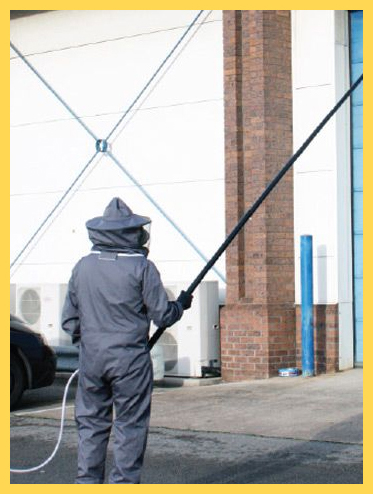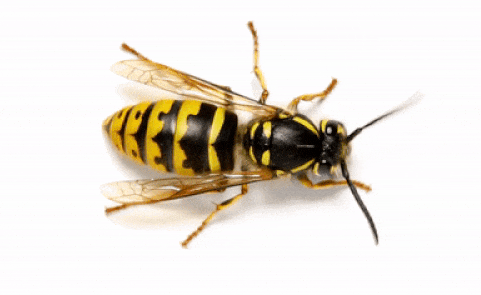Winter
During the winter only the queen will survive, hibernating and then emerging to make a new nest and start laying eggs to hatch into worker wasps.
Spring
In the spring you may spot larger than normal wasps. These are queen wasps emerging from their overwintering place which could be places as diverse as the warm folds of a curtain, a cosy crevice in a shed or a loft. The queen wasps will be on the scout for a new place to build a nest and lay their eggs. You’ll certainly know it’s a queen if it stings you because only the female wasps have the distinctive stinger, which they can use repeatedly unlike bees.
Summer
At this time of year, wasps feed their young on other smaller insects or spiders so they tend not to bother us too much but at the end of the summer the adults will be searching for sugary foods and if there is a colony near humans can become serious pests as they will sting if humans threaten them.
End of the summer
At the end of the summer season, worker wasps return to the nest and die. Only the queen survives. The queen will never use the old nest (probably because it’s full of dead wasps) and build a new wasp nest, creating a single cell at the end of a petiole. Six more cells are then added to create the hexagonal shape.
CSS Pest Services carry out treatments that may involve applying insecticides direct to the nest or aerosols or dusts in or around the entrance points of nests.
In most circumstances we can provide a fixed price for the treatment of wasps.

High level treatments can be provided without the use of expensive access equipment.






